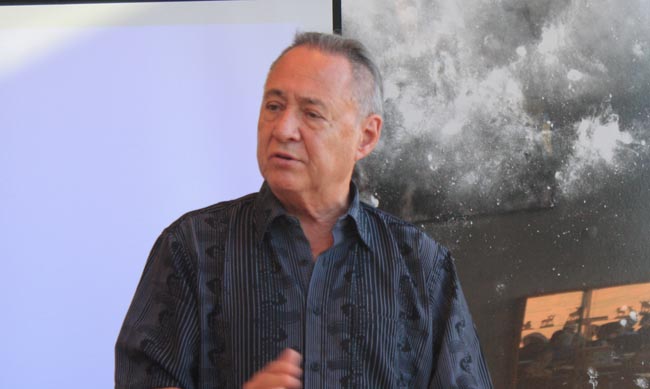NEWSFLASH – Government admits it was wrong!

By Maurice Switzer
If you’re reading this, maybe you should sit down and take a deep breath.
Because if you haven’t heard or read it anywhere else, this is to inform you that your government – the one you get to elect every four years, the people who have collected a lifetime of income taxes from you, and whose actions are supposed to make you proud to stand up when the band plays O Canada – yes, that government has officially been found guilty of racism.
This week’s ruling by the Canadian Human Rights Commission said the federal government has been guilty of discrimination against First Nations children because they do not provide them the same level of child welfare services that exist elsewhere across the country. The tribunal found that although the Harper government circulated documents proving they knew they were short-changing First Nations children in care by as much as 38 per cent below provincial Children’s Aid standards, it spent nine years denying that was the case.
Cindy Blackstock, executive director of the First Nations and Family Caring Society – along with the Assembly of First Nations – filed the complaint in February, 2007, just months after the Harper Conservatives first took office. Government lawyers repeatedly roadblocked the tribunal’s progress — running up a $5.3-million legal bill for taxpayers to pick up. Two years ago the federal Privacy Commissioner investigated Blackstock’s complaints and found that staff from two Harper government ministries –Justice and Aboriginal Affairs – were spying on her, regularly showing up at her speaking engagements and scouring her private Facebook and Twitter accounts.
The Human Rights Tribunal said government policies “resulted in denials of services and created adverse impacts for many First Nations children and families living on reserves.” It said Ottawa must
“cease the discriminatory practice” and called for a re-design of the child welfare system which it compared to the assimilationist approach of the residential school system. There are currently 16,000 First Nations children in care across Canada, more than were attending residential schools at any one time.
It recommends increasing funding and support to allow First Nations to deliver their own child welfare, an approach Indigenous leaders have advocated for decades.
The reaction by the newly-elected Liberal government?
“My job is to go forward and fix these things.” said Indigenous Affairs Minister Carolyn Bennett, who agreed with the tribunal’s decision and promised to begin working with First Nations leaders on a new approach.
Now it’s my turn to sit down and take a deep breath.
You’ll have to excuse us, but Indigenous peoples are not accustomed to ANY federal government official saying yes, you were right about this, and we had it wrong. And the chief commissioner of the human rights commission indicated there will be more to come.
“This historic decision could have a profound impact on how the government of Canada funds other on-reserve programs and services,” said Marie-Claude Landry. The gap in federal funding for education, health care, and other essential services taken for granted by most Canadians means that First Nations residents are treated like second-class citizens who too often live in Third World conditions.
Over 100 reserves do not have safe sources of drinking water – some have been living under boil-water advisories for 20 years! — and others, like the 2,000 Dene living in and around La Loche. Saskatchewan have no mental health facilities or programs for youth who are committing suicide in appallingly high numbers.
Canadians are too good to permit such inequities to exist in their midst. They will come to the rescue of children and families in need – whether from Syria or Saskatchewan – before they will make digging more pipelines a priority.
Maurice Switzer is a citizen of the Mississaugas of Alderville First Nation. He lives in North Bay, where he operates Nimkii Communications, a public education practice promoting more awareness of Indigenous issues.


